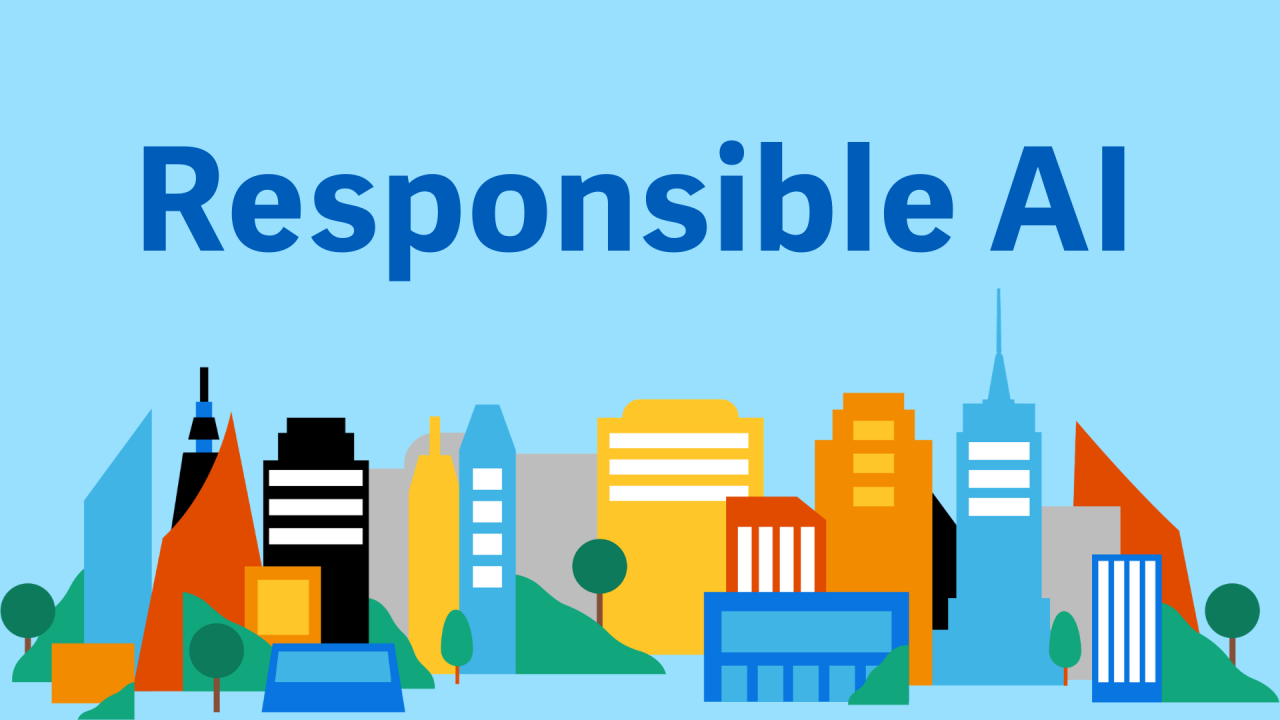Responsible AI: Acknowledging And Addressing The Limits Of AI Learning

Table of Contents
Data Bias and its Impact on AI Outcomes
AI models learn from the data they are trained on. If this data reflects existing societal biases (gender, racial, socioeconomic, etc.), the AI will perpetuate and even amplify these biases in its outputs. This is a critical concern in the pursuit of Responsible AI.
The Problem of Biased Training Data:
Biased datasets lead to unfair or discriminatory outcomes. The consequences can be severe and far-reaching.
- Biased datasets lead to unfair or discriminatory outcomes. This can manifest in various ways, impacting individuals and groups disproportionately.
- Examples: Facial recognition systems exhibiting higher error rates for people of color; loan applications unfairly denied based on biased algorithms; recruitment tools favoring certain demographics over others. These examples highlight the urgent need for fairness in AI.
- Need for diverse and representative datasets. To mitigate bias, we need datasets that accurately reflect the diversity of the population, avoiding overrepresentation of certain groups and underrepresentation of others. This requires careful data collection and curation practices.
Mitigating Bias Through Data Preprocessing and Algorithm Design:
Strategies to identify and mitigate bias include careful data curation, algorithmic fairness techniques, and ongoing monitoring of AI performance. Building Responsible AI requires a multifaceted approach.
- Employing techniques like resampling, reweighting, and data augmentation. These techniques aim to balance the dataset and reduce the influence of biased subgroups.
- Designing algorithms that explicitly address fairness considerations. Fairness-aware algorithms are designed to minimize discriminatory outcomes, even when the training data contains biases.
- Regular audits and assessments of AI systems for bias. Continuous monitoring is essential to detect and address emerging biases, ensuring long-term fairness and Responsible AI practices.
The Limits of Generalization and Explainability in AI
Many advanced AI models, especially deep learning systems, are often referred to as "black boxes." It's difficult to understand how they arrive at their conclusions. This lack of explainability makes it challenging to identify and correct errors or biases, hindering the development of truly Responsible AI.
The Black Box Problem:
The opacity of many AI models presents significant challenges for Responsible AI development.
- Difficulty in debugging and troubleshooting AI systems. Understanding why an AI system made a particular decision is crucial for fixing errors and improving performance. The lack of transparency makes this process incredibly difficult.
- Limited trust and accountability in decision-making processes. Without understanding how an AI arrived at a decision, it's difficult to hold anyone accountable for its outcomes. This lack of transparency undermines trust in AI systems.
- Need for explainable AI (XAI) techniques to improve transparency. Developing XAI methods is crucial for building more trustworthy and accountable AI systems. This allows us to understand the reasoning behind AI decisions and build greater trust in Responsible AI.
Overfitting and Generalization Challenges:
AI models may perform well on training data but fail to generalize to new, unseen data. This limits their real-world applicability and robustness.
- Importance of robust testing and validation on diverse datasets. Thorough testing is crucial to ensure that AI models can generalize well to real-world scenarios and avoid overfitting to specific datasets.
- Techniques to prevent overfitting, such as regularization and cross-validation. These techniques help to improve the generalizability of AI models and reduce their susceptibility to overfitting.
- Continuous learning and adaptation to new data are crucial. AI systems should be designed to continuously learn and adapt to new data, ensuring their ongoing relevance and accuracy.
Ethical Considerations and Responsible AI Development
The development and deployment of AI systems raise several ethical considerations that are central to building Responsible AI.
Accountability and Transparency:
Who is responsible when an AI system makes a mistake? Establishing clear lines of accountability is vital for Responsible AI.
- Defining roles and responsibilities in AI development and deployment. Clear roles and responsibilities are necessary to ensure accountability and prevent the diffusion of responsibility.
- Implementing mechanisms for redress and recourse in case of AI errors. Individuals affected by AI errors should have avenues for redress and recourse.
- Promoting transparency in AI algorithms and decision-making processes. Greater transparency allows for better scrutiny and helps build public trust in AI systems.
Privacy and Security Concerns:
AI systems often rely on vast amounts of data, raising concerns about privacy and data security. These concerns are paramount for Responsible AI.
- Implementing strong data protection measures. Robust data protection measures are crucial to safeguard sensitive information and prevent misuse.
- Ensuring compliance with data privacy regulations (GDPR, CCPA, etc.). Adherence to relevant regulations is essential for Responsible AI.
- Protecting AI systems from malicious attacks and vulnerabilities. AI systems must be secured against cyberattacks and other threats.
Conclusion
Developing truly Responsible AI requires acknowledging and proactively addressing the inherent limitations of AI learning. By focusing on mitigating data bias, improving explainability, and upholding ethical considerations, we can harness the transformative power of AI while minimizing its potential risks. The journey towards responsible AI demands continuous vigilance, ongoing research, and collaboration across disciplines. Let's work together to build a future where AI benefits all of humanity. Embrace Responsible AI and ensure its development aligns with human values. Let's build a future where AI is truly responsible and beneficial for all.

Featured Posts
-
 Aragon Siglo Xix Receta Facil Con 3 Ingredientes
May 31, 2025
Aragon Siglo Xix Receta Facil Con 3 Ingredientes
May 31, 2025 -
 May 27 2025 Horoscope By Christine Haas
May 31, 2025
May 27 2025 Horoscope By Christine Haas
May 31, 2025 -
 Covid 19 Case Increase A New Variants Potential Role According To The Who
May 31, 2025
Covid 19 Case Increase A New Variants Potential Role According To The Who
May 31, 2025 -
 Banksys Broken Heart Wall Up For Auction
May 31, 2025
Banksys Broken Heart Wall Up For Auction
May 31, 2025 -
 Living The Good Life Practical Tips For Daily Well Being
May 31, 2025
Living The Good Life Practical Tips For Daily Well Being
May 31, 2025
